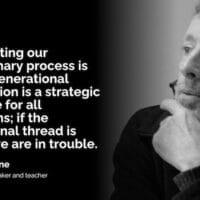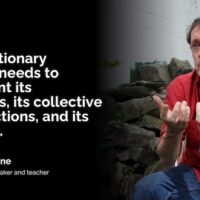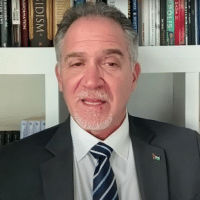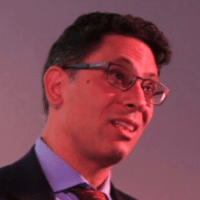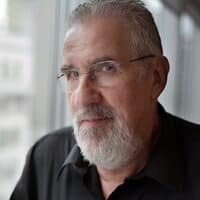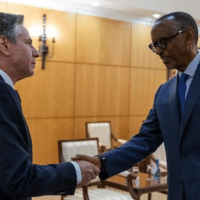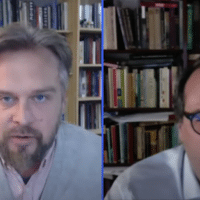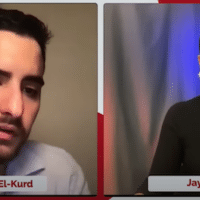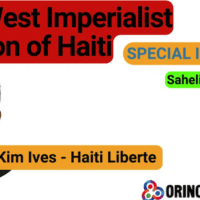-
The Cancer Factory
Too many U.S. workers still suffer and die from exposure to well-known toxic substances, a Texas investigative reporter’s new book says.
-
Michael D. Yates on Labor: Organization, Negotiation, and Education (interview parts 1 & 2)
Parts 1 and 2 of an interview with Michael D. Yates by Farooque Chowdhury. The emancipation of labor is one of the foremost questions in all exploitative societies and societies in transition.
-
Rafael Correa: Ecuador fell into the hands of narcos while the government was prosecuting me
Interview with the former president of Ecuador, Rafael Correa, about the crisis in his country.
-
‘When you’re in a colonial situation, the colonial power initiates violence’
CounterSpin interview with Gregory Shupak on Gaza and genocide.
-
Vicissitudes of grassroots media: A conversation with Thierry Deronne (Part II)
A documentary filmmaker long associated with the Bolivarian Revolution talks about the history of its audiovisual production and the challenges ahead.
-
A minimum-wage increase can benefit the whole economy
CounterSpin interview with Sebastian Martinez Hickey on minimum wage.
-
Communication by and for the People: A conversation with Thierry Deronne (Part I)
A documentary filmmaker and teacher tells the story of Venezuela’s groundbreaking community media movement.
-
The IDF’s war crimes are a perfect reflection of Israeli society
Miko Peled, author and former member of IDF Special Forces, explains how Israel indoctrinates its citizens in anti-Palestinian racism from the cradle to the grave.
-
‘”Material support” in the form of speech can be criminalized’
Wadie Said on the new Gaza McCarthyism.
-
Internationalism Today: An Interview with Paweł Wargan
Given the many contemporary global challenges—such as climate change, far-right extremism, pandemics, and the increasing threat of nuclear war—it is urgent to develop a strategic, organizational, and theoretical perspective for the international left. Daniel Benson interviews Paweł Wargan on these and other questions.
-
Milei is ‘really as extreme as you get in Right-Wing Libertarian ideas’
CounterSpin interview with Mark Weisbrot on Javier Milei.
-
A look at Assange from inside the CIA, State Department & U.S. Military
You may have heard of Julian Assange, but chances are that you haven’t heard about him from inside the CIA, State Department and U.S. military.
-
Argentina: Milei’s triumph was a neatly planned media construction
CA: “How could Milei’s triumph, geopolitically speaking, affect the Region?”
AB: “First of all, it will harm Argentina, because, in line with Washington’s demands, it will turn this country into a battering ram to reduce China’s presence in the Region, even at the cost of harming Argentina’s national interests, its exporting sectors and the labor force linked to them.” -
Special interview with Khaled Barakat: Gaza demands end of genocide, not ‘ceasefire’
Orinoco Tribune interviewed Palestinian activist and author Khaled Barakat about Palestine and the Palestinian struggle in the context of the Israeli occupation’s genocidal aggression against Gaza following the Palestinian Al-Aqsa Flood Operation on October 7.
-
BAR Book Forum: Charisse Burden-Stelly’s book, “Black Scare / Red Scare”
This week’s featured author is Charisse Burden-Stelly. Burden-Stelly is Associate Professor of African American Studies at Wayne State University. Her book is ‘Black Scare / Red Scare: Theorizing Capitalist Racism in the United States.’
-
If the U.S. told Rwanda and Uganda to get out of Congo, the War would end
The European Union has sanctioned five members of different armed groups operating in the eastern Democratic Republic of the Congo (DRC), including the spokesman for the M23 militia. It did not, however, sanction Rwanda, Uganda or the Rwandan and Ugandan presidents, despite decades of UN Group of Experts reports that the militias operating in the eastern DRC are largely Rwandan and Ugandan, though they typically claim to be Congolese.
-
Marx and Critical Social Ontology: Learning from the later Lukács feat. Michael J. Thompson
The purpose of Marxist theory is not only to diagnose the negative forces and effects of capitalist society; emphasis must also be placed on the need for social transformation that would enhance human progress at the social and individual level.
-
Palestine: “Women and Children” and the Politics of Appeal
Mohammed El-Kurd is an award-winning poet, writer, journalist and organizing from Jerusalem, Occupied Palestine. He is the Palestinian correspondent for The Nation and a Civic Media Fellow at the University of Southern California. Mohammed will talk about the representation and misrepresentation of Palestinians in the U.S.
-
U.S. sponsoring military intervention in Haiti to stop revolution: Interview with Kim Ives
The U.S. is organizing and funding a military intervention into Haiti, organized under the auspices of the UN, in order to halt Haiti’s revolutionary process, journalist Kim Ives told Orinoco Tribune in a recent interview.
-
Dispatches from Gaza
Three Palestinians describe life under constant Israeli bombardment—and lay out their visions for liberation.





